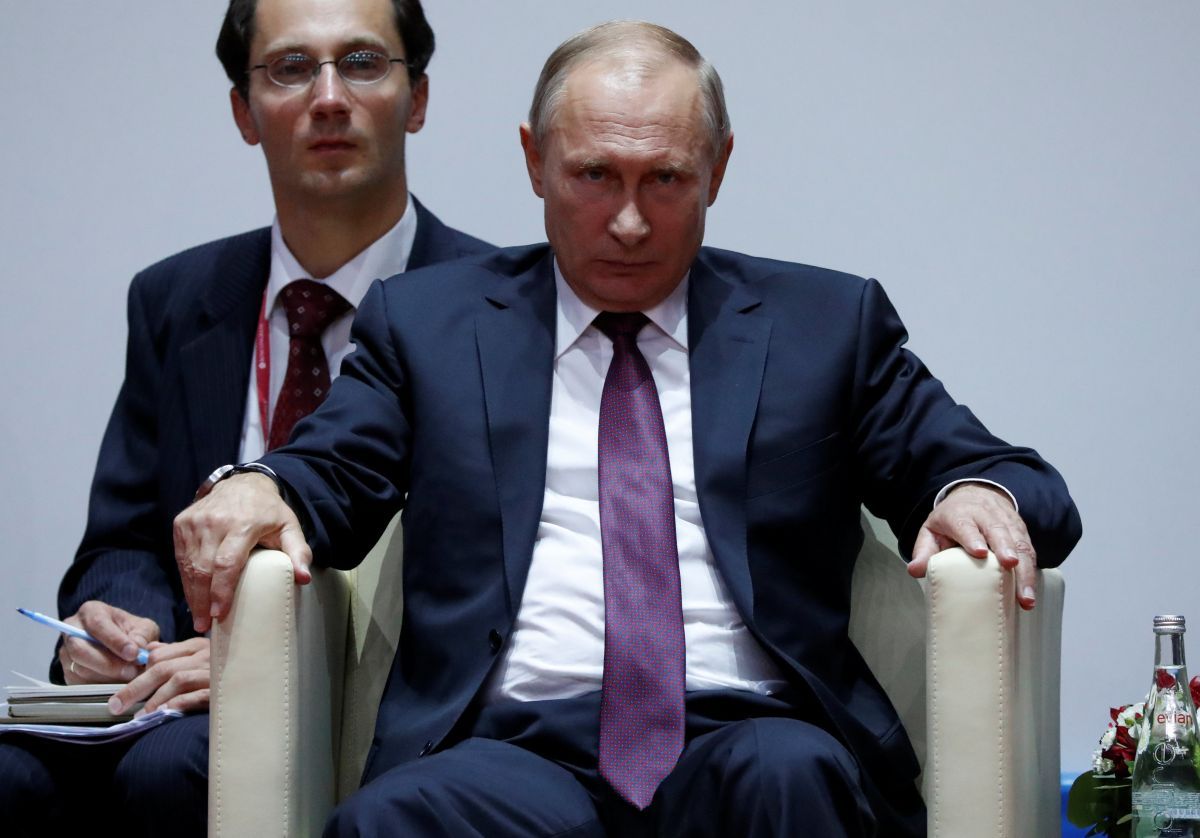
The Russian Foreign Minister also admitted in the interview on the Solovyov LIVE YouTube channel that Russia is ready to isolate itself and end all ties with the EU.
For the resident of the free world Lavrov’s words sound as an anachronism – a rudiment of a long-outdated bipolar era. After all, such rhetoric was topical during the Cold War, when, for example, the Soviet leaders promised to “bury” the West. And such threats were often too close to their practical implementation.
It’s no big secret that the modern world has changed. It is moving at a furious pace towards creation of a global society, where the inter-bloc confrontation rather finds its proper place in the history books or museums than in the current politics. And if before the global wars globalization involved mainly Western countries and their allies, then in the postwar period, not to mention the post-bipolar period, globalization has absorbed various countries, including Russia during the Boris Yeltsin administration.
However, after Vladimir Putin came to power and Russia gradually strengthened, the imperial consciousness intensified. And, it should be recognized that it took its toll not only in the narratives of the ruling elite, but also in the minds of a large part of the Russian population, fueled by total propaganda.
The neo-imperial syndrome resulted in that Russian Federation resolved or intervened in military conflicts in the post-Soviet space and beyond; launched a policy of the economic and energy blackmail of the neighboring countries; started to interfere with their foreign policy vector in various ways, and so on. And one of the most obvious manifestations of the Kremlin’s neo-imperial policy is frustration and criticism of the European integration processes in Ukraine, which escalated into an open blackmail and Kremlin’s exerting pressure on official Kyiv and direct invasion of Ukrainian territory, which caused a great resonance on a global scale.
The occupation and illegal annexation of Crimea, as well as the outbreak of war in the Donbas, have led not only to negative consequences for Ukraine in terms of significant economic and military losses, but also brought disappointing results for Moscow itself. After all, the outcomes of such expansionism did not take long: Russia was excluded from the Group of Eight (G8), deprived of the right to vote in the Parliamentary Assembly of the Council of Europe (being later restored, though), and sanctioned by the world’s most influential actors (the US, the EU, etc.).
After these circumstances, Russia began to increasingly oppose itself to the free world, feeling more and more like a “besieged fortress”. This is especially noticeable now, when Kyiv’s new initiatives, welcomed by the civilized states, are driving Moscow crazy.
Thus, the Deputy Chairman of the Kremlin-controlled Council of Ministers of the Crimea Georgiy Muradov said that the “Crimean Platform” initiated by Ukraine is an attempt to trigger a conflict. In his opinion, Ukraine intends to pit Russia and the Alliance against each other by means of the “Crimean Platform” and by including the Black Sea NATO member states, such as Turkey, Romania and Bulgaria.
However, it seems that the reason for Russia’s concern was not so much the accession to the “platform” of influential regional players and the NATO members, as its interest in the initiative of the US headed by Joseph Biden who is not to Kremlin’s liking. Especially after it became known that the American leader could arrive in Ukraine on August 23 to attend the international summit of the Crimean Platform, the format designed to coordinate international efforts to protect the rights of Crimeans and to deoccupy the peninsula.
Meanwhile, other encouraging signals are coming from Washington. The congresswoman from the Democratic Party Marcy Kaptur stated that the President Biden would promote the European integration of Ukraine and Belarus.
The importance of Kyiv and Minsk was also confirmed by the Minister of the Polish President’s Chancellery Krzysztof Szczerski during a video conference “The Carpathian Europe”. He noted that “a strong, democratic Ukraine, Belarus and the countries of the South Caucasus” are of common interest to the countries of Central and Eastern Europe, which should be aimed at moving the EU-NATO border further east.
In his turn, the Lithuanian Foreign Minister Gabrielius Landsbergis told the Radio Svoboda that the Lublin Triangle initiative will bring Ukraine’s European integration closer. He also noted that the format can be expanded, probably hinting at Belarus
Therefore, the Western world continues to support Ukraine in its European and Euro-Atlantic aspirations. Moreover, it also supports the countries whose actual belonging to the “Russian world” has not been questioned recently at all.
Russia, for its part, on the other hand, remains outside the free world because of its aggressive policies, spiced with cynical propaganda and crimes against humanity. And the biggest problem is that the confrontation with the West is likely to continue, and the concept of a “besieged fortress” will be the basis of Putin’s mobilization policy – to consolidate Russian compatriots around his person.
With the passing of time, such a policy is likely to intensify, deepening Russia’s isolation and making it even more dangerous. After all, in the state of the “besieged fortress”, they cannot avoid militarization of both the state ideology and the public consciousness.
The one should be well aware of the free world. After all, the future existence of global democracy as such will depend on how it reacts and responds. Without global democracy humanity will plunge into the same darkness in which Putin’s Russia has been for many years.